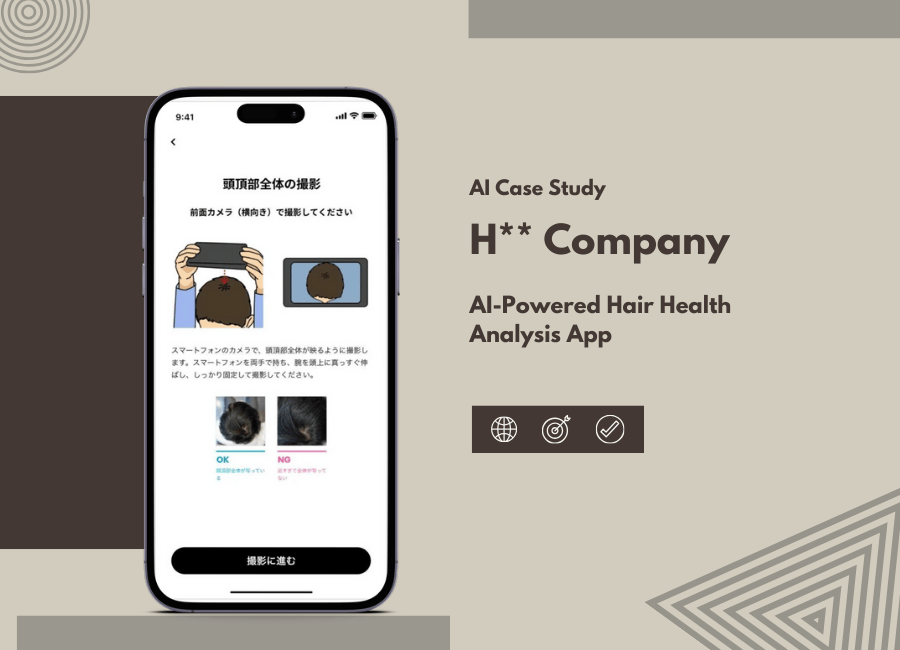Healthcare IT Solutions at AMELA Technology
No more clunky systems, no more data headaches. AMELA builds healthcare IT solutions that actually work in real life – fast, secure,
and human-centered.

Custom EMR/EHR Solutions
Maximizing clinical productivity and quality of patient care with customized EMR/EHR software solutions.
– Custom EMR/EHR Solutions
Develop EMR/EHR software with robust features, a smooth and secure database, customizable chart templates, medication tracking, and dedicated patient portals.
– EMR/EHR Mobile Applications
Enable a consistent user environment by implementing integrated mobile EHR interfaces with real-time access, patient-centered systems, billing management, and lab result sharing.
– EHR Integration
Automate access to clinical information from sources within and outside the health system through Health Information Exchange (HIE) and Practice Management Systems.
– E-Prescribing Systems
Integrate the e-prescribing platform with EHR software to avoid switching back and forth between records and prescription services. This gives doctors greater control over medications.

Patient Engagement Software
Enhancing patient experience and outcomes with advanced engagement solutions.
– Pathology
Bring pathology to patients’ fingertips with a unified system that connects hospitals, clinics, pathology centers, and diagnostic centers.
– Telemedicine
Provide technology-assisted ancillary services through user-friendly patient engagement systems and on-demand virtual doctor apps.
– Patient Wellness
Improve outcomes and satisfaction by enabling patients to request specialized wellness services anytime, anywhere.
– In-Home Patient Care
Streamline patient communication with customized home care software that empowers patients with self-directed wellness at home.

Hospital & Practice Management Solutions
Custom Practice Management Systems (PMS) to efficiently manage the daily operations of medical facilities.
– PMS Mobility Solutions
Develop cross-platform mobile applications and portals that provide role-based access to physicians, patients, and other stakeholders to remotely access and edit data.
– Custom PMS Solution Development
Develop custom PMS solutions with features for registering patients, recording demographics and medical information, processing insurance, and automating administrative operations.
– Custom Module Development
Build and integrate new modules such as patient data management, insurance and billing management, and inventory management (medicine, supplies, and equipment).
– Document Management Solutions
Digitize documentation processes with features such as digital signatures, redlining, expiration tracking, role-based approvals, and gating processes.
– Compliance with HIE Standards
Ensure compliance with healthcare information exchange standards such as HIPAA, HL7, and Digital Imaging and Communications in Medicine (DICOM).

Telehealth Solutions
Enabling secure and reliable mediums for healthcare information exchange.
– Telemedicine Software Integration
Integrate telemedicine software with EHR/EMR and practice management systems for seamless record-keeping, information sharing, and reduced errors.
– Telemedicine Software Development
Develop innovative cloud-based telemedicine systems with streamlined video conferencing, back-end integrations, remote patient monitoring, and e-prescription features.
– Telemedicine Mobile Apps
Create custom telehealth apps with real-time consultation, intuitive UI/UX, image sharing, video streaming (HIPAA-compliant), and compatibility across devices.
– Streaming Applications
Provide secure video-conferencing solutions to support virtual appointments and consultations.
– Store & Forward Telemedicine Services
Enable secure, encrypted sharing of medical data with other professionals to reduce wait times, lower travel costs, and achieve quicker diagnoses.

Healthcare Information Exchange
Delivering secure and reliable healthcare information exchange.
– HIE Mobility Solutions
Develop cross-platform mobile applications and portals with role-based access for physicians, patients, and stakeholders to remotely access and edit data.
– HIE Interoperability Solutions
Build custom solutions that support real-time consultation, intuitive UI/UX, image sharing, and video streaming while ensuring HIPAA compliance.
– HIE Standards Compliance
Design and implement interfaces with graphical data interpretation, enabling real-time sharing of patient and medical data between disparate clinical systems.
Healthcare Features That AMELA Builds
We don’t do “nice-to-have” fluff. We build the features that move the needle in healthcare – seamless EHR, telehealth that feels natural,
AI insights that doctors actually trust.

Practice Management Functions

Administrative Automation

Document & Compliance Management

Customizable EMR/EHR Modules

Mobile Access to Records

E-Prescribing Systems

Patient Engagement Tools

Telehealth & Video Conferencing

Remote Patient Monitoring

Healthcare Information Exchange (HIE)
Reasons to Outsource Healthcare Software Development
Why burn time and budget reinventing the wheel? Outsource to AMELA and you get speed, expertise, healthcare know-how without the drama.

Modern healthcare applications require modern Delivery Capabilities
- Build healthcare software applications with latest technology stack
- Provide top-notch UI/UX
- Develop exponentially scalable healthcare software solutions
- Keep costs in check by optimizing digital resources
- Deal with unknown requirements

Mature Processes & High Software Quality
- Iterative development methodology
- DevOps approach for faster healthcare software delivery
- Access to latest development methodology and coding practices Process & security level certifications

Specialized & Quality Skillset
- Seasoned subject matter experts for healthcare industry and its verticals
- Deep domain expertise across domains such as AI, IoT, mobility, ecommerce, and cloud technologies.

COE & Specialized R&D
- Quickly evolve to newer technologies
- Quickly test new ideas and pivot according to market response
Why Choose AMELA for Healthcare IT Services
Because healthcare can’t afford mistakes. Healthcare needs more than code – it needs trust, compliance, and a team that won’t let you down.
1. End-to-End Technology Capabilities
From AI, Data, and Cloud to Networking, ERP, Robotic Process Automation, and Digital Transformation, we bring a full technology stack to accelerate innovation in healthcare.
2. Security & Compliance First
All solutions are developed with strict adherence to HIPAA, HL7, DICOM, and ISO 27001/9001 standards, ensuring data privacy, system interoperability, and regulatory compliance.
3. Customer-Centric Approach
We align our solutions with your business goals, focusing on improving patient outcomes, reducing operational costs, and accelerating time-to-market.
4. Our Philosophy: Tech for Human
We believe technology exists to serve people. Guided by “Tech for Human”, we design solutions that put patients and providers at the center, making healthcare simpler, safer, and more human.
Healthcare Partners That We Work With
Hospitals & Health Systems

Clinics & Private Practices

Diagnostic & Laboratory

Telehealth Virtual Care Providers

Home Healthcare Agencies

Pharmacies

Wellness & Preventive Care

HealthTech & MedTech Startups

Certified & Battle-Tested
FAQs
1. What are healthcare IT solutions?
Healthcare IT solutions are technologies designed to digitize, connect, and optimize healthcare services. They include tools such as EHR/EMR systems, telemedicine apps, patient portals, wearable integrations, healthcare analytics, and AI-driven diagnostics. These solutions streamline clinical workflows, improve patient engagement, and ensure secure data management.
2. What are the benefits of healthcare IT solutions?
Healthcare IT solutions deliver benefits such as:
– Better patient care through faster diagnosis, teleconsultations, and remote monitoring.
– Improved efficiency by automating tasks like scheduling, reporting, and billing.
– Enhanced data security with compliance to standards like HIPAA, HL7, GDPR.
– Cost savings from reduced paperwork, optimized resources, and scalable systems.
– Stronger patient engagement via apps, portals, and personalized health insights.
– Data-driven decisions through AI, predictive analytics, and real-time monitoring.
3. Can AMELA integrate apps with existing EMR/EHR systems?
Absolutely. We specialize in EHR/EMR integration, e-prescribing, and healthcare information exchange (HIE) to ensure smooth interoperability with existing hospital or clinic systems.
4. What engagement models do you offer?
At AMELA Technology, we provide Fixed Cost, Time & Material, Staff Augmentation, and Offshore Development Center (ODC) models to fit different project sizes, budgets, and timelines
5. Do you support AI integration for health analytics?
Yes. We integrate AI modules for use cases like image-based diagnosis, hair/skin health assessment, patient risk prediction, and personalized health recommendations. We also use IoT for connected health devices, blockchain for secure medical data exchange, and cloud computing for scalable, high-performance healthcare systems.






















